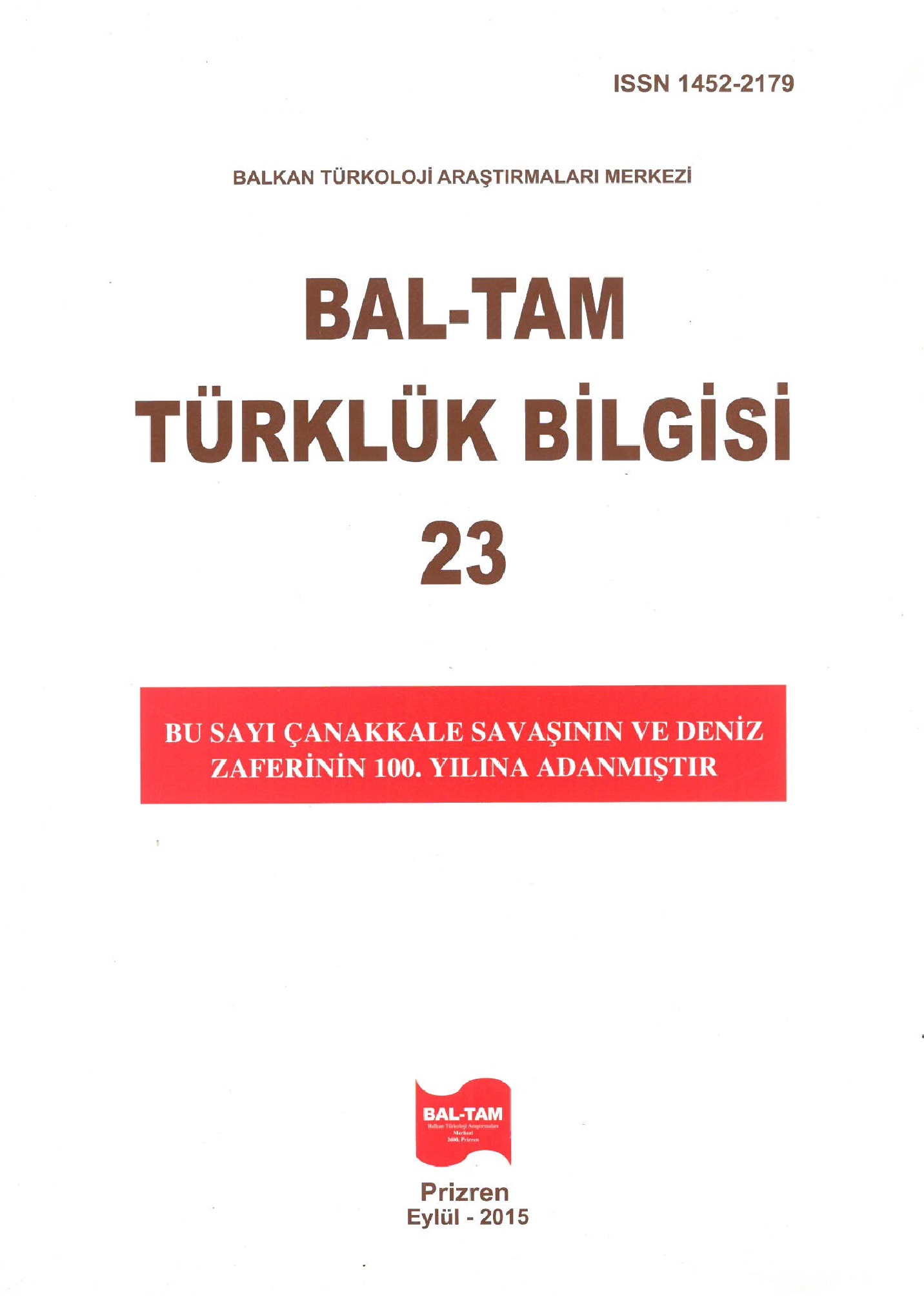Author :
Abstract
Diakronik bakışın çeşitleri dildeki dış koşulların etkisi altında oluşur ki onlar,
ilgili kullanıcıların geçmişte nasıl yaşayıp nasıl konuştuklarının tanıklarıdırlar.
Onların dilsel normlara uymadıkları gerçeğine bağlı olarak, çoğu zaman tercümeleri
zordur. Bu yüzden tercümanlar, olası yanlış anlamaları yada hedef dile yapılabilecek
hatalı aktarmalar ıönleme kiçin çeşitli metodlar kullanırlar. Bu yazıda, diyakronik
değişiklikleri, daha doğrusu Makedon folklorund abulunan Türkçe kökenli arkaik
kelimeleri ve onların Almancaya çevirilerini inceledik.. Tahlil, Makedon folklorundan
seçilmiş edebi metinler ve onların Almancaya çevrilmiş metinler üzerinde yapılmıştır.
Araştırmanın vurgusu, Makedon dilinde bulunan Türkçe kökenli arkaik
kelimelerdedir.
Keywords
Abstract
The varieties of diachronic aspect occur in a language under the influence of
external circumstances and they are the evidence of how the respective language users
have lived and spoken in the past. Due to the fact that they do not correspond to the
linguistic norms, they are often difficult to translate, so the translators use various
methods in order to avoid possible wrong understanding or incorrect transfer into the
target language. .... This paper researches some diachronic varieties, i.e. archaic
words of Turkish origin, present in the Macedonian folklore, compared to the
translations of these phenomena into German language. The analysis is performed on
selected literary texts from the Macedonian folklore, in parallel with their translations
in German. The focus is on the archaic words of Turkish origin in the Macedonian
language.
Keywords
- 1) Gerzymisch-Arbogast, H. Übersetzungswissenschaftliches Propädeutikum. Tübingen & Basel: Francke 1994
- 2) Grčeva, R. / Rau, P. Großes makedonisch-deutsches deutsch makedonisches Wörterbuch. Skopje: Magor 2006
- 3) Folklore: Der Schäfer und die dreiFeen (Übersetzung: Martin, G.S.). In: MakedonischeMärchen und Fabeln. Wiesbaden: Emil Vollmer 1970
- 5) Marolova, D. Kultur in Prosatexten in übersetzungswissenschaftlicherBeleuchtungmiteinerexemplarischenAnalyse von TextenausdemDeutschen und demMakedonischen (Dissertation) FakultätfürSprachen, Kulturen und Kommunikation, SEEU – Tetovo 2014
- 7) Народно творештво: Овчарот и трите самовили. Во: Цепенков, М.К. Сказни и сторенија. Скопје, Култура, Мисла: Македонска книга, Наша книга 1986
- 8) Snell-Hornby, M. Translation studies. An integrated Approach. Amsterdam & Philadelphia: John Benjamins1988
- 9) Snell-Hornby, M., Hönig, H. G.; Kußmaul, P., Schmitt, P. A. Handbuch Translation. Tübingen: Stauffenburg Verlag Brigitte Narr 2005





